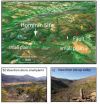According to the Centers for Disease Control and Prevention (CDC), stroke is the third leading cause of death and the leading cause of serious long-term disability in the U.S. The CDC estimates that stroke cost the U.S. roughly $74 billion in healthcare services, medications, and lost productivity in 2010. Prior studies established carotid END as the standard of care for prevention of stroke in patients with carotid artery stenosis. However, the Food and Drug Administration (FDA) Circulatory System Devices Advisory Panel recently recommended expanding availability of CAS to patients with carotid artery disease at standard risk for surgical complications. The FDA recommendation and subsequent practice guidelines sponsored by 14 organizations, including SCAI, underscore the safety and efficacy of CAS as an option for patients needing revascularization.
In the current study, David Cohen, MD, and colleagues from St. Luke's Mid America Heart and Vascular Institute in Kansas City, Mo., evaluated the cost-effectiveness of CAS versus END using SAPPHIRE trial data. The SAPPHIRE trial included 310 patients with accepted indication for END but at high risk for complication who were then randomized and underwent CAS (n=159) or END (n=151). Researchers prospectively assessed clinical outcomes, resource use, costs and quality of life for all participants over a one-year period following the procedures.
"Our findings show that CAS with embolic protection offers a cost-effective alternative treatment option for patients with carotid artery atherosclerosis who are at high risk of adverse events with END," noted Dr. Cohen. Study results showed initial procedural costs were significantly higher for stenting ($7,000) than for END ($3,000). However, post-procedure hospital stay was one day shorter for CAS which reduced associated costs, resulting in initial costs for stenting being only $559 per patient higher than for END. Follow-up costs after discharge and total one-year costs did not differ between the two procedures.
Researchers also found after the first year, the rates of death, heart attack, major stroke and repeat carotid revascularization were lower with CAS compared with END (7% vs. 13%; 3% vs. 8%; 0.6% vs. 4%; 0.6% vs. 4%). Follow-up medical costs were $810 higher for stenting. "CAS appears to be a highly cost-effective option for high surgical risk patients," concluded Dr. Cohen. "Results should not be generalized to patients at low surgical risk, however. Further studies are needed to assess efficacy and cost-effectiveness of CAS in this patient population."
INFORMATION:
This study is published in Catheterization and Cardiovascular Interventions. Media wishing to receive a PDF of the article may contact healthnews@wiley.com.
"Costs and Cost-Effectiveness of Carotid Stenting versus Endarterectomy for Patients at Increased Surgical Risk: Results From the SAPPHIRE Trial." Elizabeth Mahoney, Dan Greenberg, Tara Lavelle, Ronna Berezin, K. Ishak, J. Caro, Jay Yadav, William Gray, Mark Wholey and David Cohen. Catheterization and Cardiovascular Interventions; Published Online: February 22, 2011 (DOI: 10.1002/ccd.22869); Print Issue Date: March 2011. http://onlinelibrary.wiley.com/doi/10.1002/ccd.22869/abstract
Catheterization and Cardiovascular Interventions is the official journal of The Society for Cardiovascular Angiography and Interventions. This international journal covers the broad field of cardiovascular diseases. Subject material includes basic and clinical information that is derived from or related to invasive and interventional coronary or peripheral vascular techniques. The journal focuses on material that will be of immediate practical value to physicians providing patient care in the clinical laboratory setting. To accomplish this, the journal publishes Preliminary Reports and Work In Progress articles that complement the traditional Original Studies, Case Reports, and Comprehensive Reviews. Perspective and insight concerning controversial subjects and evolving technologies are provided regularly through Editorial Commentaries furnished by members of the Editorial Board and other experts. Articles are subject to double-blind peer review and complete editorial evaluation prior to any decision regarding acceptability. For more information, please visit http://onlinelibrary.wiley.com/journal/10.1002/(ISSN)1522-726X.
The Society for Cardiovascular Angiography and Interventions (SCAI) is the primary professional association for invasive and interventional cardiologists, representing over 4,300 physicians in 60 countries. The Society's mission is to promote excellence in invasive and interventional cardiovascular medicine through physician education and representation, its monthly journal Catheterization and Cardiovascular Interventions, and the advancement of quality standards to enhance patient care. For more information, please visit www.scai.org or SCAI's comprehensive patient education website, www.SecondsCount.org.
Wiley-Blackwell is the international scientific, technical, medical, and scholarly publishing business of John Wiley & Sons, with strengths in every major academic and professional field and partnerships with many of the world's leading societies. Wiley-Blackwell publishes nearly 1,500 peer-reviewed journals and 1,500+ new books annually in print and online, as well as databases, major reference works and laboratory protocols. For more information, please visit www.wileyblackwell.com or our new online platform, Wiley Online Library (wileyonlinelibrary.com), one of the world's most extensive multidisciplinary collections of online resources, covering life, health, social and physical sciences, and humanities.
Media Advisory
Journalists are invited to attend SCAI 2011 Scientific Sessions May 4-7, 2011 in Baltimore, Md. for the latest news in interventional cardiology, presented by the specialty's most renowned experts.
SCAI 2011 will include late-breaking clinical trials, live and taped case presentations, case reviews, cutting-edge abstract and poster presentations, and "hot topic" sessions featuring: Top trials impacting and changing interventional cardiology practice The latest techniques and findings on left main, neurovascular and peripheral interventions Emerging therapies in structural/congenital and valvular heart disease Women and PCI and Disparities in Interventional Cardiology Quality, Appropriateness and Accreditation in the Cath Lab Keynote addresses by leading interventionalists focused on the future of innovations that will transform cardiovascular care, including transcatheter valve therapies, stent technology and hybrid procedures.
In addition to providing an embargoed media kit, SCAI will host a newsroom for journalists attending the meeting. We will be pleased to help schedule interviews with SCAI physicians and study investigators.
For complimentary registration, please complete the form at http://www.scai.org/scai2011/media.aspx or contact SCAI Communications Director Kathy Boyd David at 202-552-0789 or kbdavid@scai.org.
END

